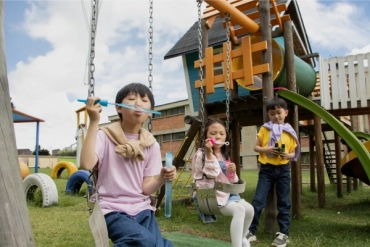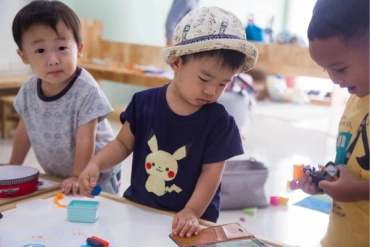Emotional (EQ)
Emotional quotient (EQ) is a measure of an individual’s ability to understand, use and manage their emotions. Also, it checks the person’s sensitivity to recognising and responding to others’ emotions.
So why is EQ important? Well, it’s a crucial life skill that lays the foundation for healthy relationships, success (academic and otherwise) and the individual’s overall well-being.
A high EQ allows your little one to build their own support network outside of their caregivers and family. This empowers them to achieve their own independence as they grow older.
We at ONE Intervention Centre firmly believe in fostering a child’s holistic development. This includes their emotional intelligence, so that they can lead fulfilling lives with meaningful relationships.
What Are The Key Components of EQ?
Self-Awareness
People with a high emotional quotient are very aware of what they are feeling. They can identify their own emotions and understand how these affect their thoughts and behaviours.
This is the bedrock of EQ. When an individual is able to understand what their emotions are, they can take steps to manage or channel these feelings into a productive outcome. This is an especially useful life skill.

Managing Emotions
The next component of emotional quotient is that the individual is able to control their response to their emotions in a healthy way.
For example, a child may be upset and frustrated that someone took their toy away. With a high EQ, they are able to calm themselves down and politely ask for the toy to be given back. On a larger scale, this helps them to cope with difficult and unexpected situations later in life.

Social Awareness
This refers to the ability to understand and respond appropriately to the emotions of others. Children with strong social awareness can pick up on nonverbal cues, such as facial expressions and body language.
This also teaches children how to empathise with others, which is important in developing meaningful and lasting relationships.

Why is Emotional Quotient Important?

Improved Social Skills
Children with high emotional intelligence are able to make and keep friends. This is because they understand how to empathise with their peers and can confidently express themselves. Thus, they are empowered to navigate through social situations effectively.

Academic Success
High emotional intelligence often means that the child is more equipped to work through conflicts with their peers. This lets them more easily handle setbacks, which further motivates their learning. Hence, they are able to focus and excel in their schoolwork.

Improved Mental Health
With high emotional intelligence, your child can better cope with stress and anxiety. They are able to identify these feelings early and thus effectively manage them. Therefore, children with high emotional intelligence can develop a more positive outlook in life.

Stronger Relationships
Relationships are built on clear communication and empathy. With high emotional intelligence, your child can achieve both. Hence, they are able to connect with others and form meaningful relationships which can support them through the rest of their life.
